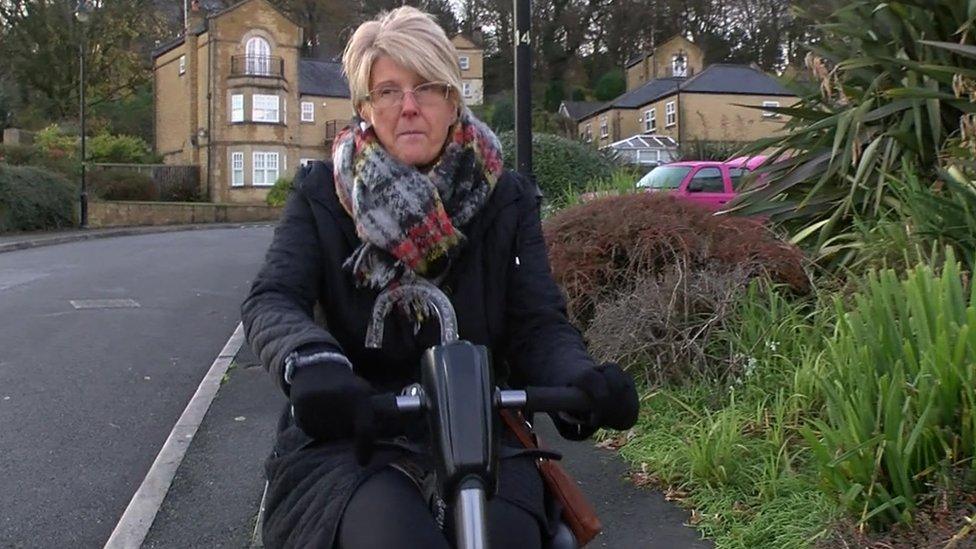Lancaster woman with MS told to 'walk off train' by conductor
- Published

Sharon Jackson said she was terrified as she "could not rely on her legs" to get off the train
A woman with multiple sclerosis claims she was told she would have to carry her mobility scooter off a train by a conductor who refused to help her.
Sharon Jackson, of Lancaster, said she was terrified as she "could not rely on her legs" and "frightened [he] wouldn't let her off".
She was travelling on Northern's Newcastle to Carlisle service on Monday evening and had booked assistance.
Northern said it only permits foldable scooters, external and is "investigating".
'Rules are rules'
Mrs Jackson said she got on the train on her mobility scooter with assistance and the use of a ramp "without incident".
She said about 15 minutes from Carlisle she was told by the conductor her type of mobility scooter was not allowed onboard. She claims the conductor told her "the only way you'll get off this train is if you walk off and carry your scooter".
And she said he added: "These are the rules and I'm sticking with it'."
Mrs Jackson - founder of Neuro Dropin centre, a charity supporting people with neurological disabilities - said she was frightened he would not let her off the train.
"When I've sat for periods of time I'm very wobbly anyway," she said.

Northern said only portable mobility scooters can be used on its trains "at the moment"
She said: "I only managed to get home because Virgin Rail interceded and brought their ramp to help me get off the train."
Northern said in a statement only portable mobility scooters can used on its trains "at the moment".
'Walk off'
It said the policy was because its current trains were designed before mobility scooters although it was currently trialling a new mobility scooter booking system on some routes.
"On this occasion, the conductor did explain the scooter policy, but once the train arrived into Carlisle he went on, with the assistance of other staff at the station, to help the customer disembark."
It added: "We can only apologise to Mrs Jackson for her experience."
When asked about the claim she was told to "walk off" carrying her scooter Northern said it would not be appropriate to comment on an individual aspect of the case until its investigation had concluded.